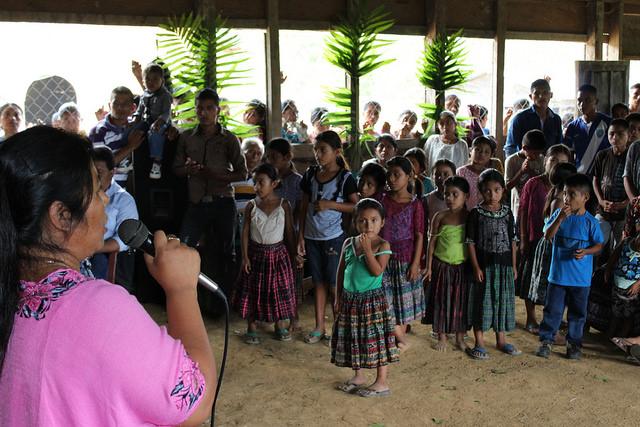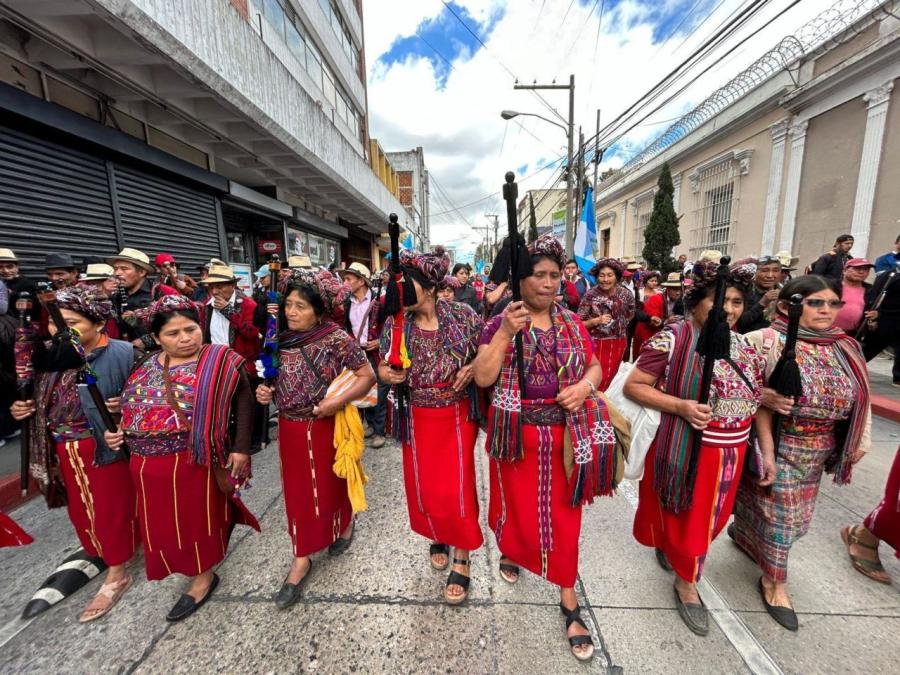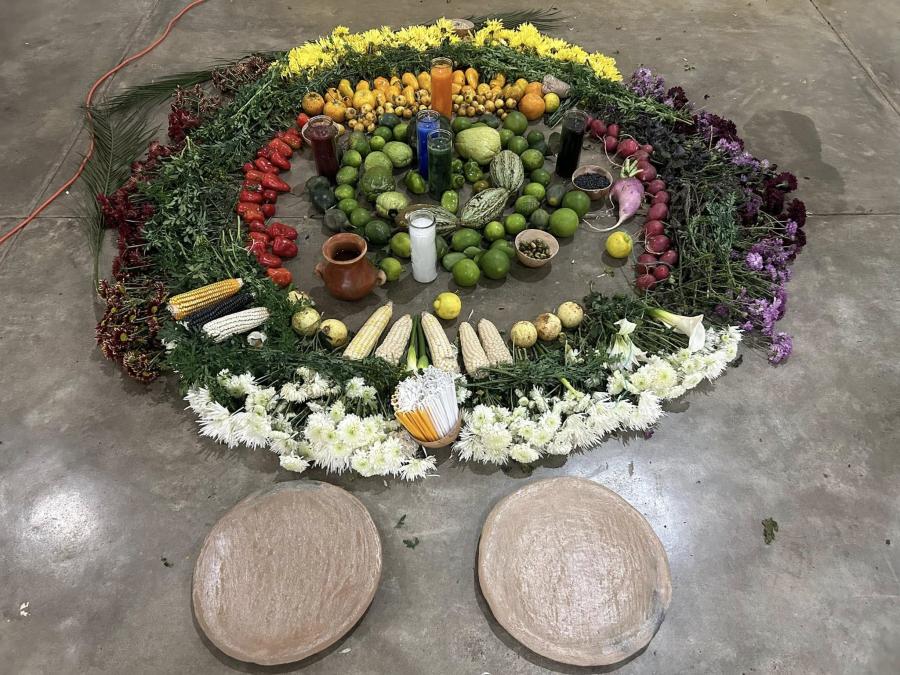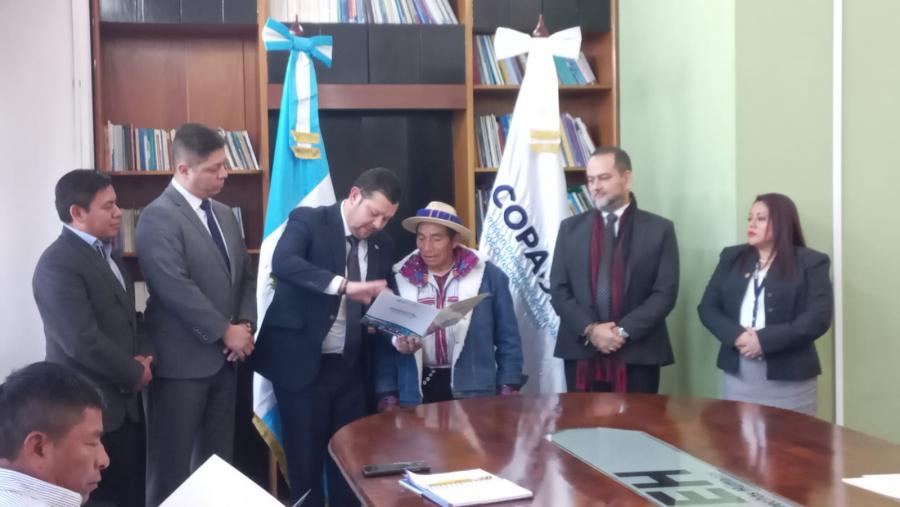
FOR IMMEDIATE RELEASE
MEDIA CONTACTS:
Agnes Portalewska
agnes@cs.org
(617) 441-5400 x14
Cultural Survival’s Community Media Grants Project Announces First Recipient,
Radio Xyaab’ Tzuul Taq’a
CAMBRIDGE, Massachusetts (December 12, 2016) – Cultural Survival and Toronto based WACC are pleased to announce the first grantee of our Indigenous Community Radio Grants Project partnership. A new radio start up, Radio Xyaab’ Tzuul Taq’a (“Voice of the Mountains” in Q’eqchi) of the Maya Q’eqchi community in El Estor, Guatemala was chosen because of the immediate need to strengthen broadcast infrastructure and systems, and the start up’s promise for continued success.
El Estor, a town of 75,000 people in Izabal, Guatemala where 85% of the population is Maya Q’eqchi. This Indigenous nation shares many experiences with Indigenous Peoples around the world-- they have faced discrimination, oppression, and exclusion, but also, possess a strong history of resilience.
The Q’eqchi’ lost their lands under colonial powers as agricultural lands were given to landlords who had ties to the military. During the 36 years of Guatemala’s civil war, the Q’eqchi were again dispossessed of their lands when communities were forced to flee to safety from the military and guerrillas. Despite the 1996 Peace Accords, they still experience systemic racism from the so-called democratic governments, which is manifested in lack of access to basic public services and lack of title to traditionally occupied lands.
In 2013, Guatemala’s Maya Councils determined that radio was an important means of communication and information for Maya people, since television and internet are highly monopolized by commercial interests and expensive. Community radio has supported the Councils in organizing 140 villages and sharing information about local events, and topics that strengthen communities, such as, health, human rights, and the environment.
The El Estor community is elated to finally have their own radio station. Community member Elena Metii says, “I would like to have a community radio where the community expresses what they feel, where the children can also participate, where they can also sing in their native language.” Angelina Ba Caal says, “I consider it very important to have a station with our participation as women. We have been limited, and this is a right that protects all women.” Julio Guevara, the district nurse states, “A community radio will help us a lot…in the process of information, communication and education.” Midwife Marcela Caal sees community radio as very important in emergencies as radio announcements about medical emergencies can save time and lives by helping find rides to the hospital and avoid high costs of hiring taxis.
Avex Cojti, Cultural Survival’s Program Manager said, “Radio is essential to inform communities about their rights, especially in very rural places and we are honored to support these efforts with Radio Xyaab’ Tzuul Taq’a. This project promotes Q’eqchi’ culture, language and cosmovision. Adult literacy radio programs for elementary school such as IGER (Institutoe Guatemalteco de Educación Radiofónica) and preventive health programs are some of the topics that will be covered. Cultural Survival and WACC wish Radio Xyaab’ Tzuul Taq’a a good start and success and we look forward to working with them to continue amplifying Indigenous voices.”
About Radio Xyaab’ Tzuul Taq’a
Radio Xyaab’ Tzuul Taq’a is new community radio station in El Estor serving the Q’eqchi’ Maya community. The community’s goal is to establish a radio that provides relevant information and incorporates the voices and opinions of different community sectors, including ancestral leaders. The radio station will facilitate communication between communities and enable them to mobilize in defense of their lands and communal rights.
About Cultural Survival
Cultural Survival’s goal is to support Indigenous Peoples self-determination and the advocacy of their Indigenous rights – the right to their lands and territories, the right to practice their cultures and speak their languages, and the right to control and sustainably manage their natural resources – so that they self-determine their own futures. Over 43 years of experience as a registered 501(c)(3) working with Indigenous communities has established Cultural Survival as a pre-eminent nonprofit organization experienced in global advocacy for Indigenous Peoples’ rights and with the expertise, partnerships, networks and communications to reach a global audience.
Our work on the front lines of advocacy with international Indigenous communities is predicated on the United Nations Declaration on the Rights of Indigenous Peoples and our programming works to inform Indigenous communities of their rights, issues and threats affecting their communities. Our programs come from an understanding that the principles of community ownership, self-determination, informed citizenry, access to information and the freedom to organize and shape the future in a way consistent with one’s tradition, language, culture and community are the foundations of vibrant and durable communities.
For more information, please visit www.cs.org or email at culturalsurvival@cs.org
About WACC
With its vision of communication rights for all, WACC’s goal is to improve access to public communication and relevant information for poor, marginalized, excluded and dispossessed people in order to enhance their participation in shaping local and national priorities and actions.
For more information, please visit http://waccglobal.org/ or email at info@waccglobal.org
###



